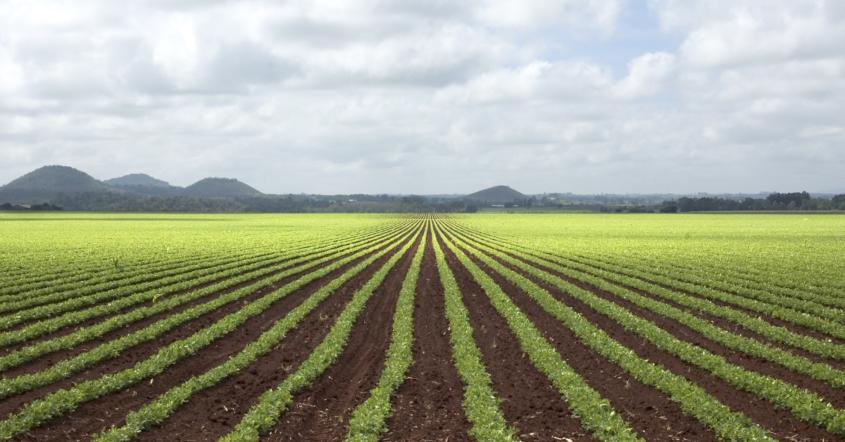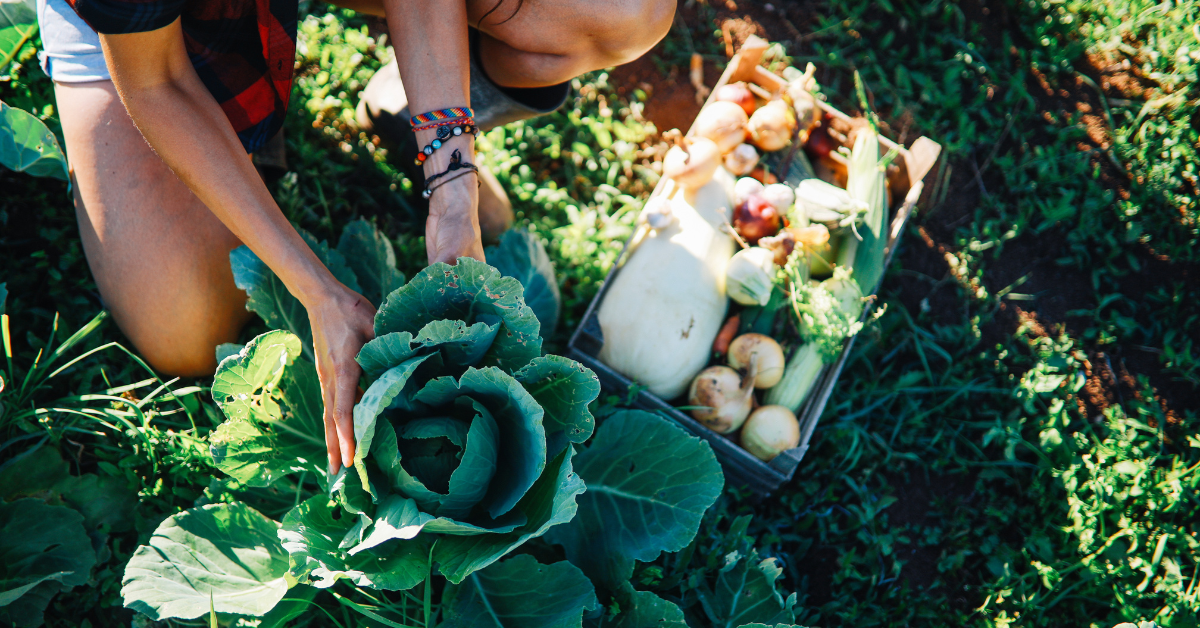Organic Farms: All the Types and Methods

Organic farms represents an approach to crop production that relies on natural processes rather than the use of chemical-based pesticides and fertilizers. The primary objective of adopting organic agriculture is to establish sustainable and environmentally friendly practices.
Organic farming contributes to environmental preservation by reducing pollution, preventing soil degradation, prioritizing biological productivity, and safeguarding against soil erosion, among other benefits.
Unlike conventional farming methods, this approach enhances soil fertility without causing harm. Embracing organic farming is crucial for both our health and environmental well-being.
Types of Organic Farms
There are two distinct categories of organic farming: pure organic farming and integrated organic farming, each with its own set of advantages and drawbacks. Some farmers opt for a more refined farming process, while others choose an integrated approach.
Pure Organic Farming
Pure organic farming, as the name suggests, relies on entirely natural cultivation methods. It abstains from using inorganic chemicals that could harm the soil, crops, and those who consume them. In this method, farmers employ organic fertilizers and bio-pesticides derived from natural sources, such as bone meal and blood meal.
Integrated Organic Farming
Integrated organic farming involves the integration of pest management and nutrient management to meet ecological requirements and economic demands simultaneously.

Organic Farms Methods and Techniques
Organic farming is centered around enhancing soil health and producing highly nutritious crops through the utilization of organic waste. Various techniques are employed in organic farming to achieve these goals:
Crop Rotation
Crop rotation is a vital technique wherein farmers avoid planting the same crop in the same location year after year. Instead, they cultivate a variety of crops in rotation to preserve soil health. This practice naturally replenishes the soil, as different plants contribute various nutrients. Crop rotation also disrupts the habitat of pests, weeds, and insects, aiding in their control.
Green Manure
Green manure involves uprooting and incorporating dying plants into the soil. These plants serve as valuable nutrients, enhancing soil fertility over time.
Usa compost in an organic farm
Compost is among the finest natural fertilizers utilized in organic farming. It consists of recycled organic matter rich in nutrients, elevating soil quality and bolstering crop yields.
Crop Diversity (Polyculture)
Modern organic farming embraces the practice of “Polyculture,” where a variety of crops are cultivated simultaneously to meet the rising global food demand. This approach is in contrast to traditional “Monoculture,” where only one type of crop was cultivated in a specific area.
Polyculture not only enhances crop diversity but also promotes the development of essential soil microorganisms, thereby boosting production.
Soil Management
The foundation of successful cultivation lies in soil quality. Over time, soil loses its nutrients through crop cultivation, necessitating effective soil management. Organic farming strives to enrich soil quality naturally, primarily through the use of beneficial bacteria found in animal waste. These bacteria increase nutrient levels in the soil, rendering it fertile for sustained production.
Biological Pest Control
Agricultural landscapes harbor a multitude of organisms, some beneficial to crop production while others disrupt it. To maintain soil fertility and protect crops, it’s imperative to manage the growth and population of harmful organisms in a natural and eco-friendly manner.
Organic farmers achieve this through the use of mild or natural herbicides and pesticides with fewer chemicals. Additionally, thorough farm sanitation practices are employed to control detrimental organisms in the field.
Weed Management
Weeds or wild grasses often coexist with cultivated crops in agricultural fields, competing for vital nutrients and hampering crop growth. Organic farming strategies aim to minimize weed growth rather than eradicating it entirely.
Techniques such as mulching, which involves using plant residue or plastic films to impede weed growth, and mowing or cutting to reduce weed proliferation are key components of weed management. These methods enhance overall crop growth.
Incorporating Livestock
To bolster the sustainability of agricultural land, organic farming integrates domestic animals into the farming ecosystem.
Genetic Modification
Organic farming prioritizes natural methods to enhance crop production and soil quality, firmly avoiding genetic modification.
However, it’s worth noting that modified crop pollens may exist in seed stocks used for organic farming, making it challenging to completely eliminate genetic modification from organic agriculture.
The Current State of Agriculture
Modern agricultural practices often rely heavily on chemical fertilizers and pesticides to meet global food demand, resulting in these chemicals entering waterways and seeping deep into the soil.
This leads to elevated levels of pollution, encompassing soil and water pollution. It is imperative that we transition to more environmentally friendly farming methods like organic farming to facilitate natural healing of the environment.
Promoting organic farming should be a priority, reducing reliance on chemical-based fertilizers and pesticides. Moreover, organic farming stands as an effective alternative to fortify soil quality without resorting to harmful chemicals.

What is the Future of Organic Farms?
The future of organic farms looks promising and is likely to continue evolving in several ways:
- Increased Consumer Demand: As a consumers become more health-conscious and environmentally aware, the demand for organic products is expected to rise. People are willing to pay a premium for organic produce due to its perceived health benefits and reduced environmental impact. This increased demand is likely to incentivize more farmers to adopt organic farming practices.
- Technological Advancements: Organic farming will benefit from technological advancements. Innovations in soil management, pest control, and crop monitoring will improve yields and reduce the labor intensity of organic farming. Precision agriculture tools, such as drones and sensors, can help organic farmers make more informed decisions.
- Research and Education: Continued research into organic farming methods and practices will lead to improved techniques and increased productivity. Education and training programs for farmers will help them adopt and adapt to the latest organic farming methods.
- Regulatory Support: Governments around the world are recognizing the importance of organic farming for sustainable agriculture and environmental conservation. They may provide incentives, subsidies, or regulatory support to encourage more farmers to transition to organic practices.
- Local and Sustainable Food Systems: Organic farming often fits well with local and sustainable food systems. As these systems gain popularity, organic farming can play a significant role in providing fresh, locally grown produce to communities.
- Crop Diversity: Organic farming emphasizes crop diversity and rotational planting, which can contribute to greater resilience against pests, diseases, and climate change. This diversity is likely to become more important as climate-related challenges intensify.
- Urban and Vertical Farming: Organic farming is not limited to rural areas. Urban and vertical farming using organic principles can help meet the demand for fresh produce in densely populated urban areas while reducing transportation costs and environmental impacts.
- Soil Health Focus: Organic farming places a strong emphasis on soil health and regeneration. As concerns about soil degradation and climate change grow, organic farming practices may serve as a model for sustainable soil management.
- Certification and Transparency: Certification standards for organic products will continue to evolve, ensuring that consumers can trust the authenticity of organic claims. Transparency in the supply chain and labeling will become increasingly important.
- Challenges to Address: Challenges such as pests, diseases, and weed control without synthetic chemicals, as well as the scalability of organic farming, will need to be addressed. Research and innovation will play a vital role in overcoming these challenges.



